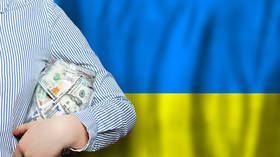Anti-Russian sanctions don’t work – Poland

The recovery of the Russian ruble indicates that the West's sanctions on Moscow are not serving their purpose, Polish Prime Minister Mateusz Morawiecki said on Saturday. A large number of states, including all the EU's members, imposed restrictions on Russia after it attacked Ukraine in late February.
“I must say this very clearly: the sanctions we have imposed so far don’t work. The best evidence is the ruble exchange rate,” Morawiecki said on Saturday.
“The ruble exchange rate, this litmus test, has returned to the level it was before the Russian aggression against Ukraine. What does it mean? It means that all economic, financial, budgetary, and monetary measures have not worked as some leaders wished. It needs to be said very loudly,” he added, speaking at a center for Ukrainian refugees in Otwock near Warsaw.
Poland has advocated for tougher sanctions against Russia over its actions in Ukraine.
Earlier this week, the prime minister tweeted that “The sanctions are supposed to stop Putin. If they haven’t, it means they are not robust enough!”
In March, as Western nations started imposing sweeping sanctions on Moscow over Ukraine, the ruble plunged to historic lows of 132 per dollar and 147 per euro. However, by the end of March, the ruble was trading at around 85 per dollar and 93 per euro, almost the same as the rates before Russia launched its military campaign. The Russian currency recovered following a number of measures taken by the Central Bank, and Moscow’s announcement that it will require “unfriendly countries” to pay for gas in rubles.
Moscow attacked the neighboring state following Ukraine’s failure to implement the terms of the Minsk agreements signed in 2014, and Russia’s eventual recognition of the Donbass republics in Donetsk and Lugansk. The German and French brokered Minsk Protocol was designed to regularize the status of the regions within the Ukrainian state.
Russia has now demanded that Ukraine officially declare itself a neutral country that will never join the US-led NATO military bloc. Kiev says the Russian offensive was completely unprovoked and has denied claims it was planning to retake the two republics by force.













